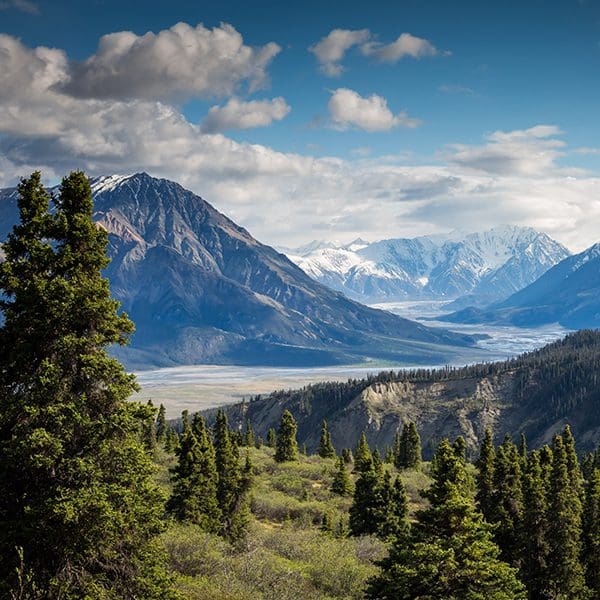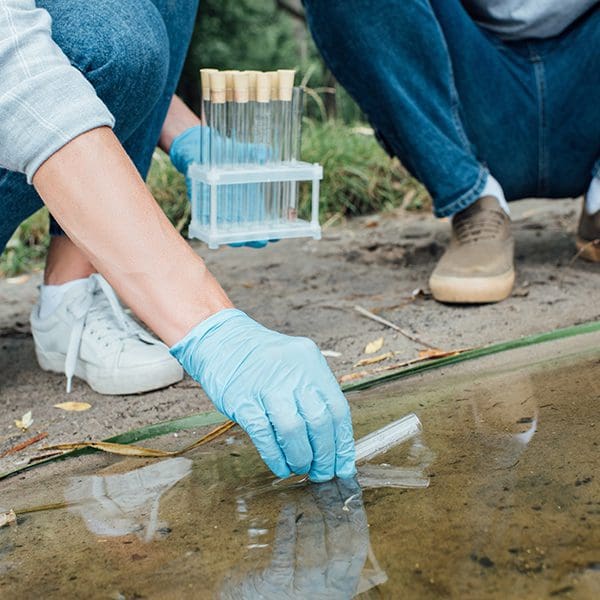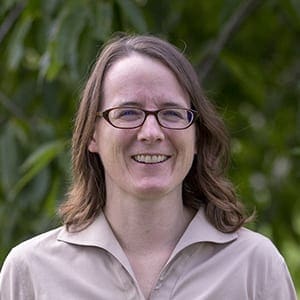Natural Resource Conservation & Management
Bachelor of Science
Applying is easy and free!
Make a difference
for a more sustainable world.
Are you passionate about conservation and ready to make a difference today? With a Natural Resource Conservation and Management Degree, you will learn how to study and evaluate the environment and create solutions for sustainability.
Program Overview
The Natural Resource Conservation and Management Program prepares students for careers such as environmental consultants and natural resource program managers. Land development for residential, commercial, agricultural, or recreational purposes requires evaluation and assessment of important habitats, sensitive features, and ecosystem services.
To prepare to fill these roles, our students practice skills such as plant identification, soil evaluation, wetland delineation, and restoration planning in the context of current scientific knowledge and environmental regulations. Our graduates also contribute to the sustainable use of natural resources as land trust directors, park managers, and community partners.
Nationally Recognized Program
The Natural Resource Conservation & Management program at Unity offers immersive skills-based courses and a nationally recognized faculty that prepares students to become leading conservation professionals and resource managers.
Clear Career Paths
Launch your career as a Natural Resource Project Manager, Environmental Consultant or Land Use Planner, or pursue opportunities in wetlands delineation, ecosystem restoration and regulatory compliance through our extensive networking and internship programs. In addition, Natural Resource Conservation and Management students experience fieldwork and undergraduate research opportunities, so you’ll be prepared to start your career or continue on to graduate school.

Program Highlights
+ Unity Environmental University is an accredited institution by New England Commission of Higher Education.
+ With eight start dates per year, students can apply year-round and enter into the program at any point in the year.
+ Our five-week terms let students concentrate on just one or two classes at a time.
+ All classes are taught by faculty experts in their respective fields and trained in pedagogical practices specific to their modality, online or face-to-face.
Destination Education Experiences

Habitat Assessment and Management
Discover the habitat potential of streams, forests, and fields; predict changes to habitat quality under various development or management scenarios; and make management recommendations for the conservation and improvement of wildlife habitats in the New England landscape.

Surface and Groundwater Hydrology
Experience hands-on training in field and laboratory methods used to quantify and model components of local and regional hydrologic systems. Practice coursework in local fields and streams using industry-standard hydrological equipment to measure fluxes of this critical natural resource.

Wetlands I and II
From marshes to swamps to bogs, wetlands are critical ecosystems that protect water quality, mitigate floods, and support wildlife. Learn the science of wetlands, how they are regulated, and how to assess, manage, and restore them. Visit local wetlands to identify plants, record soil profiles, measure water levels, delineate wetland boundaries, and perform wetland functional assessments.

Experts in the Field
Dr. Katherine Crowley
Assistant Professor of Plant Biology
Dr. Kathy Crowley is a broadly trained plant ecologist with a focus in forest and wetland ecosystems, where she asks questions about the role of plants in a changing environment. She uses models to investigate how changing plant species interact with environmental stressors such as climate change, invasive insects, diseases, and atmospheric pollution—to affect how ecosystems function. Kathy’s prior work in research, environmental consulting, and non-profit conservation also inform her teaching, which includes a range of courses in botany and ecology.

Small Class Sizes
At Unity Environmental University, we believe our students are not just a number. The value of small class size intimacy is important to us. We give the benefit of creating tight-knit communities where networking can flourish. By keeping our class sizes small, our faculty can dedicate their time to working closely with each student.
Degree Requirements and Courses
The Natural Resource Conservation & Management degree requires a minimum of 120 earned credit hours, 30 credits at the 300 level or above, a minimum of 30 credits earned at Unity, and an overall cumulative GPA of 2.0 or above. For more requirements, browse our degree checklist. View our full course catalog for a better look into your program. Then apply online for free to get started.
Frequently Asked Questions
-
How much does it cost?
Your education should be affordable and manageable. Our team will work with you through the admissions process to help you plan and pay for your degree. Learn more about the costs here.
-
How fast can I finish?
It depends on whether you have credits earned from other institutions, whether you plan on taking one or two classes per term, and if you take a term off. We are here to help you plan and stick to your educational goals. Get more info today!
-
How many credits can I transfer?
Apply online (it’s free!) and we will reach out to create an individualized plan for transferring your credits. You may also want to try estimating your transfer credits using Transferology.
-
What courses will I be taking?
For course requirements, browse our Natural Resources Conservation & Management checklist or view our full course catalog for a better look into your program. Then apply online for free to get started.
Career Outlook
Earn your degree.
Unlock new opportunities.
Environmental Scientists and Specialists jobs in the U.S., 2021.
Median salary, 2021.
Estimated U.S. job growth through 2031.
Environmental Scientists and Specialists jobs in the U.S., 2021.
Median salary, 2021.
Estimated U.S. job growth through 2031.
*Source: U.S. Bureau of Labor Statistics. Unity Environmental University cannot guarantee employment. Salary data represents averaged earnings for the occupations listed and includes workers at all levels of education and experience.
Careers and Outcomes
Follow your curiosity.
Realize your potential.
Contact Hybrid Learning
Address
Unity Environmental University Hybrid Learning
90 Quaker Hill Road
Unity, Maine 04988
Last Updated on March 13, 2024



